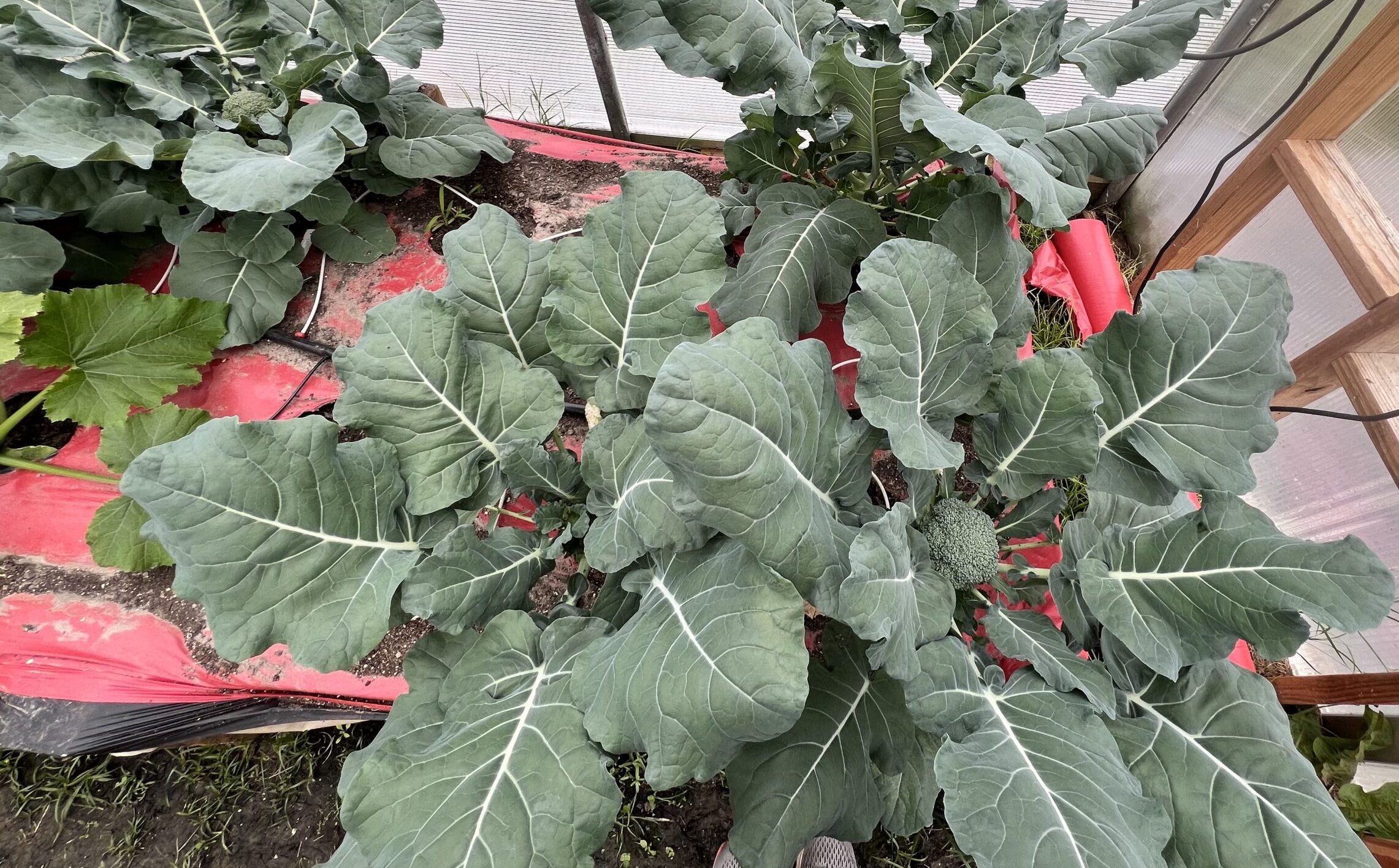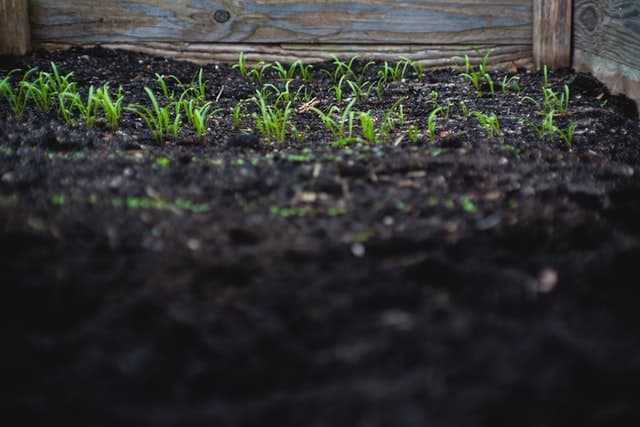What is Square Foot Gardening?
Square foot gardening is a method of gardening that involves dividing a raised garden bed into one foot square sections to maximize space and efficiency, allowing for compact growing. The square foot gardening method is beneficial for all gardeners from beginner to advanced! This method allows you to grow a lot of food in a small area – perfect for urban gardeners. Learn how to use our square foot garden planner Hortisketch.
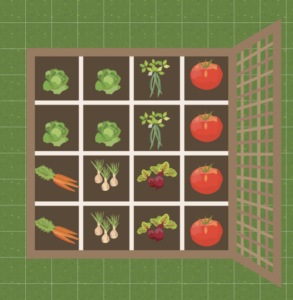
Square Foot Gardening Rules
Square foot gardening follows a set of principles aimed at maximizing space, minimizing maintenance, and increasing yields. Here are the basic rules of square foot gardening:
Divide the Garden into Square Foot Sections: The garden bed is divided into small square sections, typically 1 foot by 1 foot. Each square represents a distinct planting area.
Use Raised Beds
Square foot gardening often employs raised beds to improve soil drainage, warmth, and accessibility. The raised beds are typically 12 to 18 inches tall.
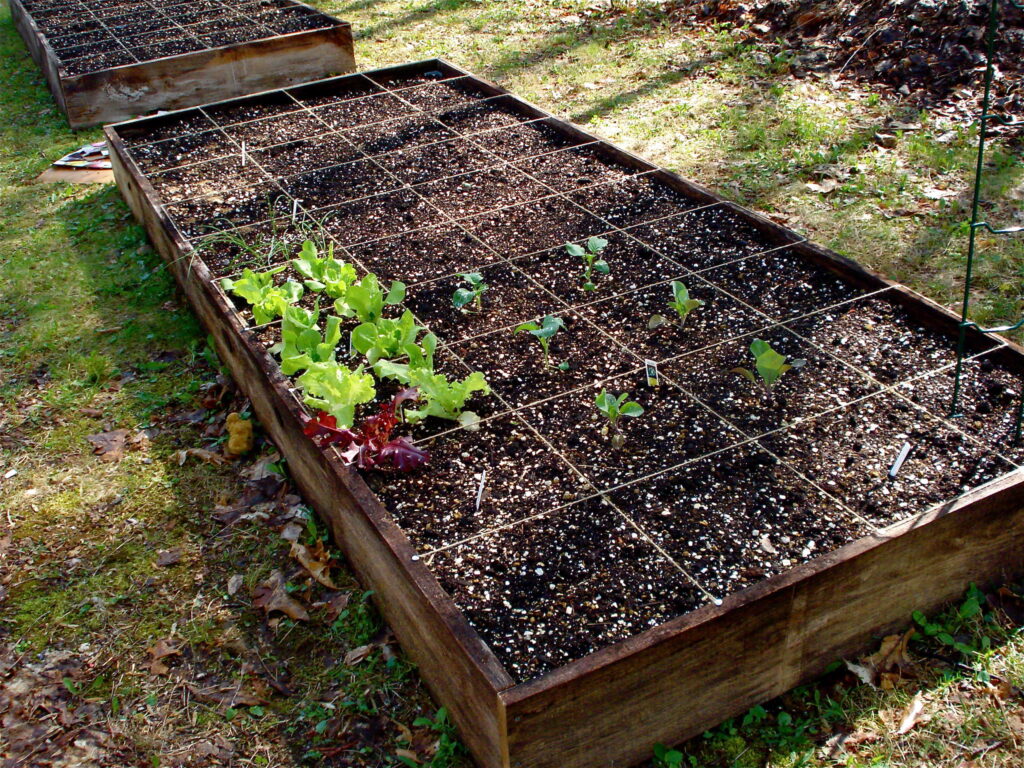
Deep Soil Preparation
Prior to planting, the soil in raised beds is deeply amended with compost and other organic matter to create a nutrient-rich growing environment.
Create a Grid
Within each raised bed, a grid is laid out to divide the bed into the individual square foot sections. This grid can be made of wood, string, or other materials and serves as a guide for planting and maintenance.
Plant Intensively
Each square foot section is planted with a specific number of plants, depending on their size. Larger plants may occupy a whole square, while smaller plants may be planted in multiples within a square.
Companion Planting
Utilize companion planting techniques to maximize space and enhance plant health. Certain plants are grown together to complement each other, deter pests, and improve yields.
Crop Rotation
Rotate crops annually to prevent soil depletion and minimize disease and pest problems. Different types of crops are planted in each square foot section each year to maintain soil fertility and balance. Hortisketch helps you track what you planted where each season to make sure you properly rotate your vegetables.
Intensive Plant Spacing
Plants are spaced closely together within each square foot section to maximize the use of space.
Vertical Gardening
Incorporate vertical gardening techniques to grow vining plants (beans, cucumbers, peas) and big plants (tomatoes, peppers, zucchini) thereby utilizing vertical space efficiently.
Regular Maintenance
Practice regular maintenance, including watering, weeding, and harvesting, to keep the garden productive and healthy. Square foot gardening minimizes the effort required for maintenance due to its small, manageable size.
By following these rules, gardeners can achieve high yields in a small space while minimizing the effort and resources needed for maintenance. Square foot gardening is particularly well-suited for beginners, urban gardeners, and those with limited space.
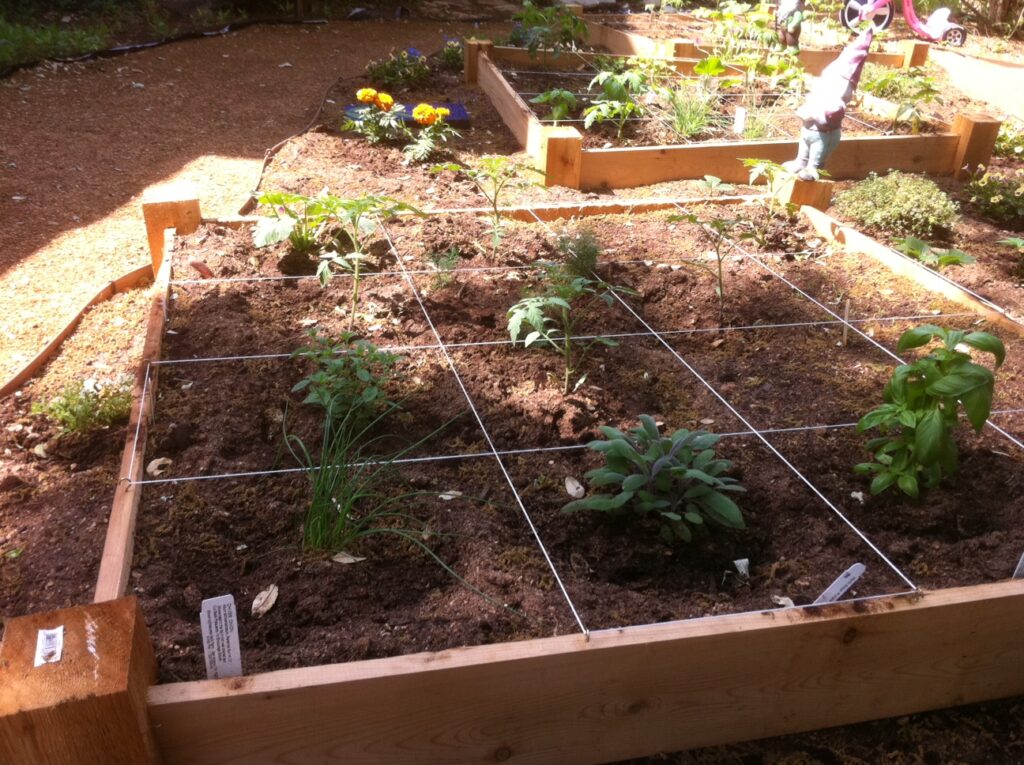
Recommended Plant Spacing for Square Foot Gardening
| Vegetable | Number of Plants per Square Foot |
| Beans (bush) | 4 |
| Beans (pole) | 4 |
| Beets | 9 |
| Broccoli | 1 |
| Carrots | 16 |
| Cucumbers | 2 |
| Lettuce (leaf) | 6 |
| Lettuce (head) | 2 |
| Onions | 9 |
| Peas | 9 |
| Peppers | 1 |
| Radish | 16 |
| Spinach | 9 |
| Tomato | 1 |
| Zucchini | 1 |
Pros and Cons to Square Foot Gardening
Pros:
- Beginner friendly approach to Gardening
- Maximized space
- Reduced weeding
- Efficient watering
- Easy crop rotation
Cons:
- Initial set up cost/labor
- Limited plant selection
- Risk of overcrowding
- Dependency on soil quality
GardenAI
Have other gardening questions? Ask GardenAI – The only gardening focused AI chatbot.
